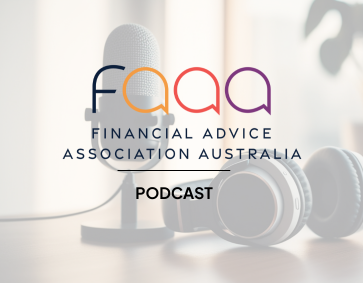Ecstra Foundation is calling on the Federal Government to implement a National Financial Capability Strategy, placing a strong focus on financial education starting in schools and continuing through key life stages. The Foundation warns that without national coordination, efforts to improve Australians' financial literacy will remain fragmented and inconsistent.
Australians are managing increasingly complex financial decisions, compounded by digital disruption, inflation, climate change, and misinformation. Yet many lack the confidence, skills, and support needed to navigate these challenges effectively.
“Financial literacy is a lifelong skill that should begin at home and in the classroom and evolve with people’s life circumstances” said Caroline Stewart, CEO of Ecstra Foundation.
It is not just a personal benefit. There are clear economic and social benefits to making financial capability a national priority, laying the foundations for improved productivity, consumers’ ability to withstand financial shocks and long-term economic wellbeing.”
Widespread support for early financial education
Ecstra’s 2025 Financial Education in Schools Survey reveals strong consensus about the importance of financial education for young people.
Stephanie Hui, Head of Policy and Engagement at Ecstra says “The results highlight that 95% of teachers, 98% of parents, and 93% of students believe financial education is vital for young people, and that this has become even more crucial given cost of living pressures, economic uncertainty, the rise of digital transactions and the growing influence of social media for information.
Currently, financial literacy is embedded in the Australian curriculum up to Year 10, but it is not taught as a standalone compulsory topic. There are persistent gaps in confidence, knowledge, and engagement that act as barriers to effective teaching and learning.
“Students are engaging with money earlier than ever through online platforms, digital payments and part time work. They need relevant, practical financial education that grows with them through life. This should be addressed as part of a holistic national plan.”
Australia losing ground internationally
While educators, community organisations, industry, and private providers are working hard to improve financial literacy, efforts are often inconsistent and siloed in the absence of national coordination.
Australia was previously an active and recognised global leader in financial capability. While more than 70 countries are advancing their national strategies, Australia is out of step with no current active national financial capability plan, and risks falling behind its global peers.
“Other countries are setting the pace. Australia could step up reasonably quickly to re-establish leadership by setting a clear, national direction, starting with financial education,” said Stewart.
Recommendations for national change
To embed financial literacy across the life course, Ecstra is proposing a three-part strategy:
- Develop and implement a National Financial Capability Strategy
Led by the Federal Government, this would set a national vision for improving financial wellbeing across education, work and community settings. - Make financial literacy a compulsory, stand alone subject in schools
A dedicated subject will ensure consistent, high-quality delivery for every student, regardless of where they live or what type of school they attend. - Invest in educator support and professional development
Teachers need access to up to date resources, training and time to deliver engaging, effective financial education in the classroom.
Programs delivering results, demand growing
Ecstra’s Talk Money program has delivered over 12,000 workshops in 1,533 schools, reaching more than 469,000 students, and highlighting the need for a more integrated and supported national approach.*
“There is strong demand from educators who want to do more but need the right tools and backing,” said Hui. “We’ve seen firsthand how powerful financial education can be when teachers can access the classroom resources they need.”
International research shows that quality financial education leads to better decision-making, budgeting, saving, and managing debt—outcomes that benefit both individuals and the economy.
We now have an opportunity to make a lasting impact. A National Financial Capability Strategy, starting with school based education as a key pillar can create real, measurable benefits for Australians at every stage of life.”
* As at 31 August 2025












